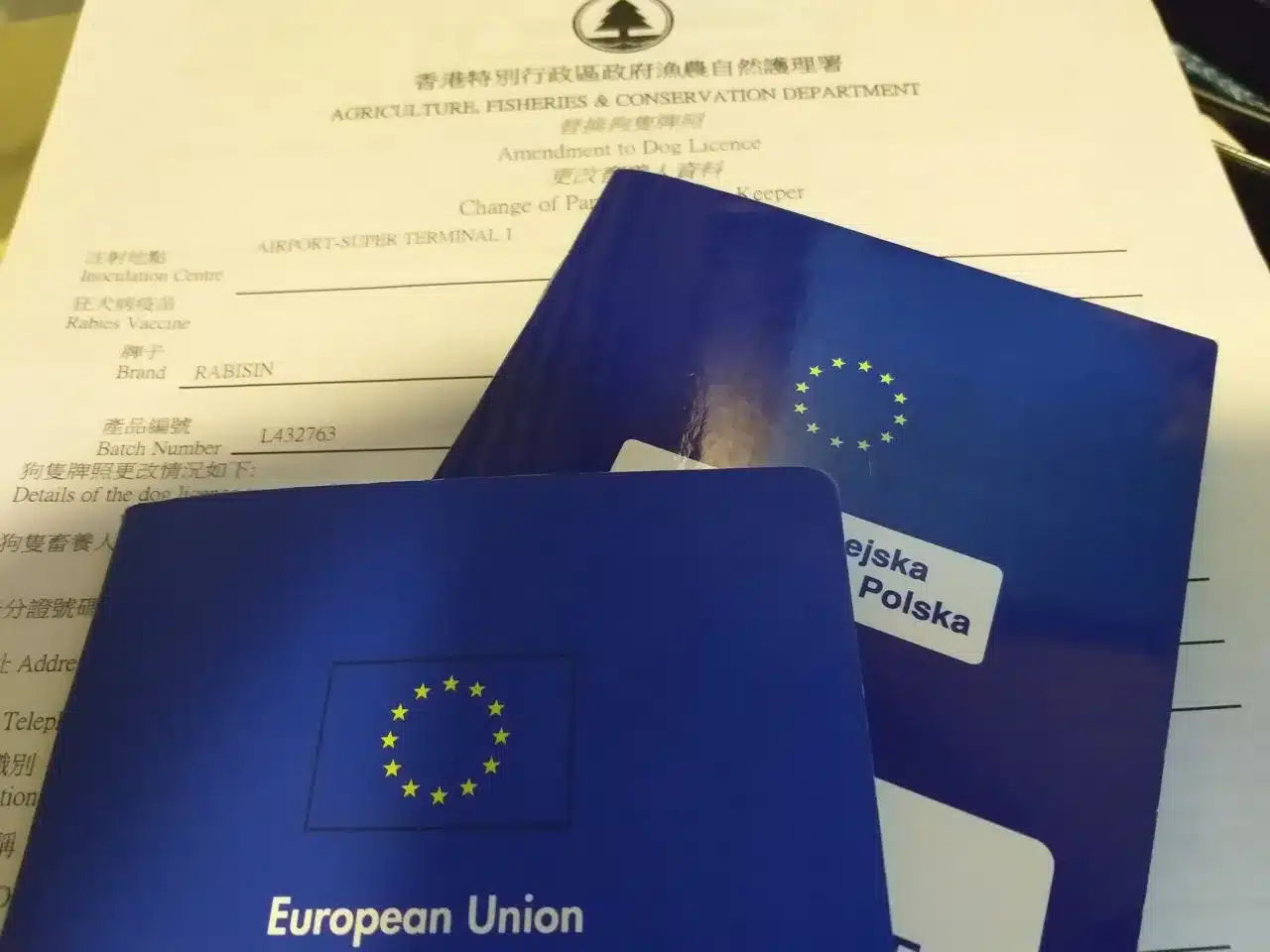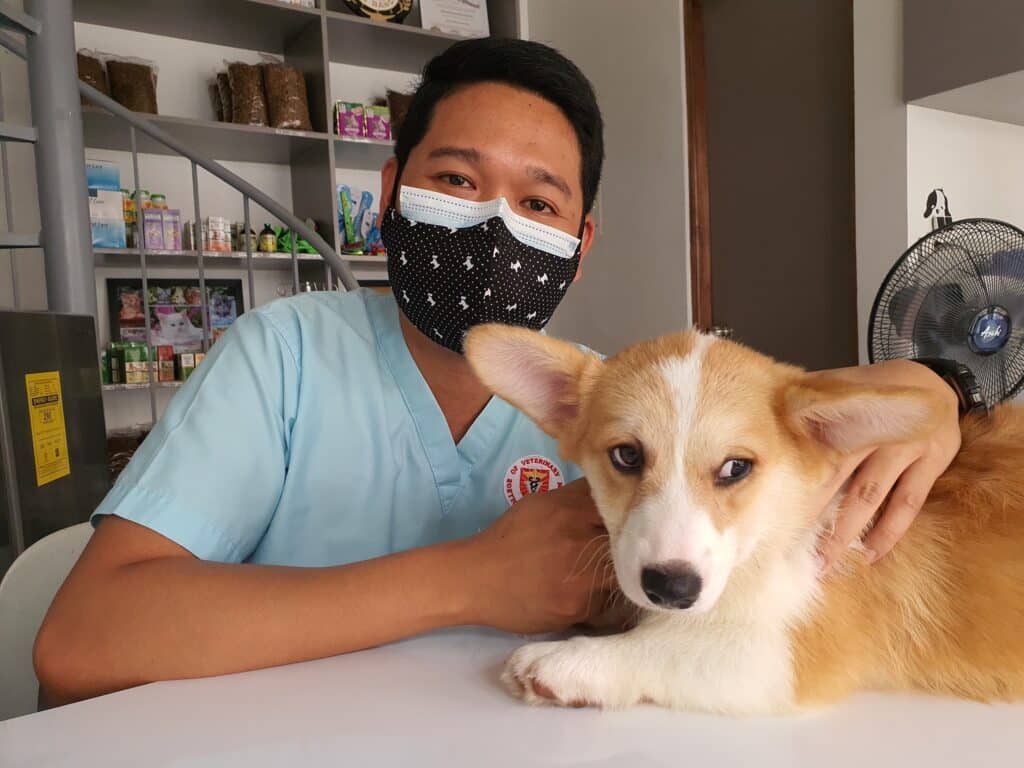Health Certificate for Dogs & Cats
Whether you’re planning a pet holiday or relocating overseas, one essential document often stands between you and a smooth journey: a pet health certificate. This official piece of paper isn’t just a formality; it’s your pet’s medical passport that proves they’re healthy, vaccinated, and safe to travel.
Traveling with pets, especially internationally, requires more than just booking a ticket and packing a bag. Airlines, government agencies, and even pet boarding facilities require assurance that your dog, cat, or other companion won’t pose a health risk to other animals or humans. That’s where the pet health certificate, also known as a Certificate of Veterinary Inspection (CVI), comes in.
Unfortunately, many pet owners don’t realize they need one until the last minute, only to discover that different destinations have different rules, timelines, and paperwork requirements. Here we’ll walk you through everything you need to know: what it is, who needs it, when to get it, and how to avoid the most common (and costly) mistakes.
Let’s dive into the complete guide to pet health certificates so you and your furry friend can travel stress-free and fully compliant for both domestic and international travel.
What is a Pet Health Certificate?
A pet health certificate, also known as a Certificate of Veterinary Inspection (CVI) or pet certificate of health, is an official document issued by a licensed veterinarian. It confirms that your dog, cat, or other pet is free from infectious diseases and medically fit for travel.
Depending on the destination, a pet animal health certificate may be required for:
- Air travel (domestic and international)
- Interstate or cross-border movement
- Pet relocation or adoption
- Entry into boarding facilities, pet hotels, or grooming salons
Without a valid certificate, your pet could be denied boarding, quarantined, or even refused entry into certain countries.
What is a Health Certificate for Dogs?
A health certificate for dogs is an official document issued by a licensed veterinarian that confirms your dog is healthy and fit for travel. It includes vaccination records, details about your dog’s overall health, and proof that your pet is free from contagious diseases. This certificate is often required for air travel, international trips, or even interstate transport.
What is a Health Certificate for Cats?
A health certificate for cats is a veterinary-issued document stating that your cat is in good health and up-to-date on vaccinations. It verifies that your cat is not carrying any communicable diseases and is safe to travel. This certificate is typically required by airlines, countries, or states before allowing your cat to travel or enter a new area.
What’s Included in a Pet Health Certificate?

A pet health certificate includes essential medical and identification details about your pet to confirm they are healthy and safe for travel. While formats may vary depending on your destination or airline, most vet health certificates follow a standardized checklist to comply with domestic and international pet travel regulations.
This certificate acts as an official record that your pet poses no health risks to people or other animals. It is a key requirement when applying for a health certificate for pet travel, whether for a dog, cat, or other companion animal. Here’s what is typically included in a pet certificate of health:
- Pet’s Full Name – As stated in their passport or official registration documents
- Owner’s Details – Your name, home address, and contact information
- Pet Description – A physical description including colour, breed, markings, and any distinctive features
- Microchip Details – Microchip number, implant date, and confirmation of scanning
- Breed and Date of Birth – Including sex and approximate age if unknown
- Collection Address – The address from which the pet is departing
- Vaccination Records – Type of vaccine, batch/serial number, administration date, and expiration
- Country-Specific Vaccination Requirements – For example, rabies test, tapeworm, or leptospirosis may be mandatory for entry into certain countries
- Vet’s Signed Declaration – A formal statement from the veterinarian declaring that your pet is in good health, disease-free, and safe to travel
A health certificate for a pet is a legal travel document, often required by airlines, government authorities, and boarding facilities to ensure the safety of your pet and the public.
In some cases, especially when obtaining an international pet travel health certificate, you may need to provide extra documentation such as:
- A rabies test for specific countries
- Proof of parasite treatments
- An official export or import permit
- A certificate in pet care, depending on regulations
These additional requirements are crucial for travel to countries with strict animal health laws, such as the EU, Japan, Australia, or New Zealand.
When Do I Need a Pet Health Certificate for Dogs and Cats?
You’ll need a pet health certificate for dogs and cats anytime your pet is travelling across borders, boarding at a facility, or being transported for adoption or sale. While not always legally required for local travel, many airlines, governments, and pet services demand a health certificate for pet travel as a safeguard against the spread of disease.
Here are the most common situations where a health certificate for dogs or cats is needed:
- Air Travel (Domestic or International): Most airlines require a recent vet health certificate to confirm your pet is healthy and safe to fly. Without one, your pet may be denied boarding.
- Domestic or International Travel: Many countries and even the United States require a valid pet health certificate for travel, especially for border control and quarantine purposes.
- Boarding Facilities & Daycare: Kennels, grooming centres, and pet daycare facilities often ask for a pet certificate of health to ensure all animals in their care are vaccinated and free from contagious illnesses.
- Adoption or Relocation: When transferring ownership or moving to a new location, a travel certificate for pets helps establish the animal’s health history and ensures compliance with animal transport regulations.
- Export or Import Requirements: If you’re moving abroad or importing a pet, many countries require an international health certificate for cats or dogs, sometimes alongside a rabies test or import permit.
Whether you’re flying with your dog to another state or taking your pet on an overseas adventure, a health certificate for your pet isn’t just paperwork; it’s your pet’s passport to safe and stress-free travel.
Each destination has its own rules and timelines, so it’s essential to consult with your vet and check entry requirements well in advance, ideally several weeks before travel.
How to Get a Pet Health Certificate for a Dog or Cat?
Obtaining a pet health certificate may seem overwhelming at first, especially if you’re preparing for international travel, but the process is straightforward when done step by step. Whether you’re applying for a health certificate for dogs, a cat health certificate, or a general travel certificate for pets, it’s essential to plan and follow the correct procedures to avoid last-minute complications.
Here’s how the process works:
Step 1: Schedule a Vet Visit
Start by booking an appointment with a licensed and accredited veterinarian who is authorized to issue vet health certificates. Not all vets are qualified to provide certificates for international travel, so confirm in advance that your vet meets the necessary guidelines. Let them know the exact destination, mode of travel (e.g., air or ground), and your planned departure date so they can prepare accordingly and align with the timing regulations of your destination.
Step 2: Bring the Required Information
Gather and bring all relevant documents, including your pet’s up-to-date vaccination records (especially rabies), microchip details, previous health certificates, and travel itinerary. Some countries require proof of specific vaccinations, deworming treatments, or a certificate in pet care to confirm your pet is eligible to enter. International travel may also require a USDA endorsement, depending on the country, so be prepared for additional paperwork.
Step 3: Physical Examination
During the appointment, your vet will perform a thorough physical examination of your pet to check for signs of illness, injury, or parasites. They will ensure your dog or cat is healthy, free from communicable diseases, and physically fit to travel. The vet will also verify that your pet has received all required vaccinations, including rabies, distemper, and parvovirus, depending on the destination’s guidelines.
Step 4: Additional Treatments or Tests
Based on your destination’s regulations, your vet may recommend or be required to administer additional treatments. These may include tapeworm treatment, flea and tick control, or a rabies test, a blood test used to prove effective rabies immunity for countries like Japan, the EU, or Australia. Some nations also require proof of internal and external parasite treatments administered within a certain timeframe before travel.
Step 5: Receive the Certificate
Once your vet confirms your pet meets all health and travel requirements, they will issue the appropriate health certificate for pet travel. This could be a dog travel certificate, a cat health certificate, or a general pet animal health certificate, depending on the species. The certificate will include important details like your pet’s microchip number, physical description, vaccination records, and the vet’s signed declaration of health. Most certificates are valid for 10 to 30 days, so be sure your travel date aligns with the validity period.
Tip: Make sure to request multiple certified copies of the certificate and keep both printed and digital versions with you during the journey. You may be asked to present them at multiple checkpoints, such as airports, customs, or boarding facilities.
Also, You like to Know About: Cat & Dog Relocation Documentation and Certificates
Common Mistakes to Avoid For a Pet Health Certificate While Travelling
1. Scheduling vet visits too late
Waiting until the last minute to book your pet’s health check-up can lead to missed deadlines, especially since most certificates are only valid for a short window (usually 10 to 30 days). Early scheduling ensures your pet meets all requirements in time for travel.
2. Not checking specific destination requirements early
Each country or state may have unique rules about vaccinations, tests, and paperwork. Failing to research these ahead of time can result in a rejected entry or quarantine, causing stress and extra expenses.
3. Forgetting additional permits or tests
Some destinations require extra documentation like import permits, rabies tests, or parasite treatments. Overlooking these can delay or prevent your pet’s travel.
4. Using a vet not authorized for international certificates
Not all veterinarians are authorized to issue international vet health certificates. Using a certificate from an unauthorized vet may cause it to be invalid, risking denied boarding or entry.
Conclusion: Travel Smart, Travel Safe with a Pet Health Certificate
Whether you’re jetting off across the globe or simply boarding your furry companion for the weekend, a pet health certificate is more than just a travel document; it’s your pet’s passport to safety, health, and stress-free adventures.
By understanding what’s required, preparing ahead of time, and working closely with your veterinarian, you’ll avoid last-minute surprises and ensure your dog or cat meets every regulation.
From routine vaccinations to destination-specific rules, each step in the health certificate process is crucial. So, plan early, stay informed, and make sure your pet’s paperwork is just as ready to travel as their favourite toy. With the right preparations, you and your four-legged friend can enjoy a smooth and safe journey wherever life takes you.
Click Here For Shipping Enquiry
FAQs For Pet Health Certificate
1. How much is a pet health certificate?
The cost of a pet health certificate varies depending on your location and the type of travel. For domestic travel, it typically ranges from USD $50 to $150, while international health certificates can cost $200 to $400 or more. Additional services like microchipping or rabies titer tests may increase the total cost.
2. Do I need a different certificate for cats?
Yes, cats require their own health certificate, which is similar in structure but may involve different health checks and vaccination requirements. Some countries have unique rules for cats, including specific testing or quarantine periods. It’s important to check your destination's entry requirements for feline travel well in advance.
3. What happens if I travel without a certificate?
Traveling without a valid pet health certificate can result in serious issues at the airport or border. Your pet could be denied boarding, quarantined upon arrival, or turned away entirely. It can also cause delays, fines, or stress for both you and your pet, so always confirm certificate requirements before your trip.
4. Do I need a health certificate for domestic travel?
While a pet health certificate may not be mandatory for every local trip, many airlines and certain U.S. states do require one, particularly if your pet is flying in-cabin or as cargo. It’s always best to check the specific travel and airline regulations in advance, as they can vary widely depending on your destination.
5. Can I use the same certificate for multiple trips?
Unfortunately, no. Pet health certificates are typically valid only for a limited time often 10 to 30 days depending on whether you’re traveling domestically or internationally. A new certificate is generally required for each new journey to ensure your pet’s health status is current and meets the latest travel requirements.
6. Can any vet issue a pet health certificate?
No, not all veterinarians are authorized to issue these certificates. In the United States, only licensed and USDA-accredited veterinarians can provide valid pet health certificates for travel. If you’re outside the U.S., make sure the vet you choose is recognized by your local animal health authority or government.



